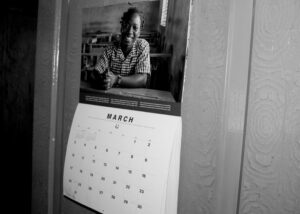As a task force we have been publicly silent as perspectives are expressed and information is shared all around us.
This silence has been intentional. We want to lead a process that respects the voices of our churches, and we have listened without debate or comment.
We are encouraged that the process is generating very good discussion and discernment.
We are grateful for the many voices that have spoke, both publicly and privately.
At this stage—the fifth year of discernment—we do wish to share some perspectives that are a bit more than a “report.” We trust that this can be helpful as information and clarification.
Participation encouraging
The participation of individuals and congregation, across the regions of Mennonite Church Canada has been encouraging. To date, about 110 congregations have responded. We are anticipating that even more will do so. It is likely that we will hear from at least 60 percent to 65 percent of MC Canada congregations directly. This number does not include the delegate discussions at the assemblies, which would increase the percentage even more. This high rate of response is quite abnormal in broad discernment processes, and we are grateful for the insight and wisdom being shared among us.
There has been an audible silence from the “newer Canadian” congregations. We are making a concerted effort to hear from them directly. Thus far, this effort has been much appreciated.
Until now, the responses to the Being a Faithful Church (BFC) process and papers have been overwhelmingly positive. Each draft and recommendation that has been taken to the MC Canada assemblies in 2009, 2010, 2011 and 2012 has been approved by the delegates by near consensus (with two or three votes against so far). This has given us a strong foundation upon which to build. We do want to remind us all that this is a “building” process. We cannot repeat everything from previous studies in each new study. But we do assume that the previous material is there, and that we can build on it.
We continue to hear very positive responses to the process in the congregations. Some see this as an opportunity for a broadly based conversation on sexuality that is very helpful and long overdue. Others appreciate the resources that are being provided and the consultative style that is being used to engage congregations and individuals. Still others express appreciation that the process is designed to be truly grassroots, and the discernment is not imposed by a committee or other body.
Not all are engaged, however
We know, however, that not all have chosen to participate. While this is predictable and understandable, we would wish for 100 percent participation.
Already at the beginning of this multi-stage process, we indicated that as we get closer to the actual discussion of sexuality, resistance would begin to build and participation could begin to drop. There is some evidence, although not much yet, that this is beginning to happen with the BFC 5 paper: “Biblical perspectives on human sexuality.”
We have been alerted to a number of reasons for some reluctance now. Some are suspicious that the outcomes of this process are pre-determined, and that input is not really welcome. Some are concerned that the process is moving either too quickly or not quickly enough, thereby sensing that responding is not worth the effort. Some are concerned that opening the discussion of sexuality more overtly in the congregation will generate conflict and even division, and there is a reluctance to do this. Others indicate that the process drains “missional energy” away from other important agendas of the church. Some have a sense that they are not sufficiently prepared biblically and theologically to respond in a helpful way.
Still others support the process, but indicate that their congregations have recently gone through a similar process and do not want to repeat what has already been done. Still others have indicated that they have already reached a decision regarding underlying issues of same-sex relationships, and don’t feel a need to influence the broader church with their decision. Some individuals respond with the disclaimer: “I am not speaking for my congregation, but I do want to express my opinions.” Such input is also welcome.
We note that each congregation has its own story. Most are actively participating. There are those that are not are not necessarily opposed to the process but, because of their own story, do not wish to participate at this point. We also note that we are hearing representative voices from a very broad range of preferences.
Sociologists teach us that in a process like this, we should be aware of the “bell curve.” This insight is also becoming apparent to us. The “bell curve” suggests that we should expect a spectrum of opinion and understanding in our church. Approximately 15 percent at both ends of the spectrum will have their minds made up, and will either not participate or will participate with the assumption that the process will not change the perspectives they already hold. The 70 percent portion between the two ends will be vitally interested in discussion, learning and discernment. This phenomenon, we believe, is also apparent in our process.
Seeking ‘God’s will for us in our time and place’
We can also share some further perspectives from experiences so far.
We wish to repeat again that the process has only one pre-determined outcome: our common desire to be a church that faithfully discerns—as best we can—God’s will for us in our time and place. This desire is based on a conviction that Scripture discerned in the body of Christ, with the power of the Holy Spirit, is a faithful and needed guide. All other potential outcomes are subsumed within this larger intention.
While this process is designed to help us look carefully at challenges of sexuality, and, more specifically, same-sex realities among us, we need to keep in mind the larger intention. Discerning faithfulness is a normal and ongoing vocation of being the church in the world. This is a missional vocation, not one that detracts us from our missional purposes.
The process challenges us: Can we still be a biblically discerning church in the midst of 21st-century Canadian realities? Can we be such a church together from coast to coast to coast? We are already noting some preferences. For some, the autonomy of the local congregation should be a higher priority than how others may understand things. Others hope that the desire for autonomy can be moderated by covenant with others, even when we disagree. Still others suggest that the voices from our worldwide communion represented by Mennonite World Conference should also be heard and taken into account. We also hear the concern that the process must begin to take more seriously the voices of social, political, legal and scientific movements around us.
We are noting that testing individual and/or congregational discernment with what others have discerned is not easy, and for this reason it is not always welcome. Living in the midst of diversity is uncomfortable. This means that we will need to pay close attention to finding ways in which diversity in our body can be acknowledged in healthy ways.
We wish to highlight one important fruit of the process already. From congregational and individual responses, together we have identified guidelines to interpret the Bible in healthy ways. These are summarized in the “Paths and ditches” document. This is quite a remarkable achievement. We have heard often that we need to have some help in how to read the Bible in healthy ways. We now have a common framework that can be used when discernment points to diversity. This framework surely is not the last word. But it is likely the first time we have such a resource, generated by the “pews,” in our quiver of resources. We are truly grateful.
The 21st century will be a stimulating and challenging time for the church to be the church in Canada. The Holy Spirit is with us, and God’s presence is guiding us. This process is strengthening our muscles in being a biblically, faithful, discerning church. And that will serve us well as we move forward together.
The Being a Faithful Church Task Force was appointed by the Mennonite Church Canada General Board. It includes Willard Metzger, Andrew Reesor-McDowell, Rudy Baergen, Hilda Hildebrand, Laura Loewen and Robert J. Suderman.
–Posted Feb. 12, 2014
More about the BFC process:
Being a faithful church
Sexual inclusivity motion to be presented at national assembly
On using Scripture to discern sexual issues
Being a Faithful Church process avoids sexuality issue
Blog: Out of practice
Being a Faithful Church process introduces online forum
Young Voices: Silence and spinning wheels
An affirmation of celibacy
Between horizons: biblical perspectives on human sexuality
Part 1 of a 6-part series- Being a faithful church: The paths and ditches of Biblical interpretation (Links to the other parts are there.)







Leave a Reply
You must be logged in to post a comment.